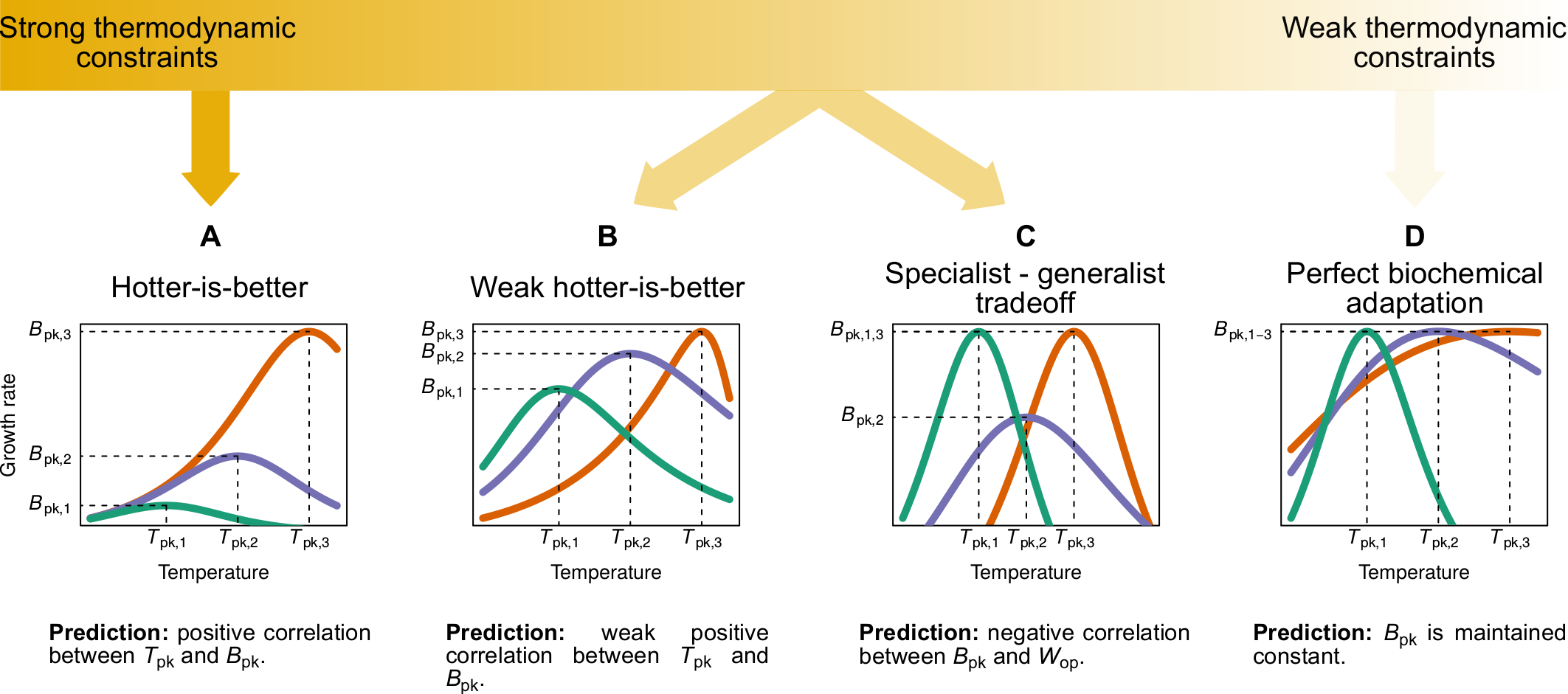9. Kontopoulos, D.-G.✉, van Sebille, E., Lange, M., Yvon-Durocher, G., Barraclough, T.G., and Pawar, S. (2020). Phytoplankton thermal responses adapt in the absence of hard thermodynamic constraints. Evolution 74(4):775-790. 
[Top Cited Article 2020-2021 in Evolution]

Abstract:
To better predict how populations and communities respond to climatic temperature variation, it is necessary to understand how the shape of the response of fitness-related rates to temperature evolves (the thermal performance curve). Currently, there is disagreement about the extent to which the evolution of thermal performance curves is constrained. One school of thought has argued for the prevalence of thermodynamic constraints through enzyme kinetics, whereas another argues that adaptation can—at least partly—overcome such constraints. To shed further light on this debate, we perform a phylogenetic meta-analysis of the thermal performance curve of growth rate of phytoplankton—a globally important functional group—, controlling for potential environmental effects (habitat type and thermal regime). We find that thermodynamic constraints have a minor influence on the shape of the curve. In particular, we detect a very weak increase of maximum performance with the temperature at which the curve peaks, suggesting a weak "hotter-is-better" constraint. Also, instead of a constant thermal sensitivity of growth across species, as might be expected from strong constraints, we find that all aspects of the thermal performance curve evolve along the phylogeny. Our results suggest that phytoplankton thermal performance curves adapt to thermal environments largely in the absence of hard thermodynamic constraints.
 citation
citation